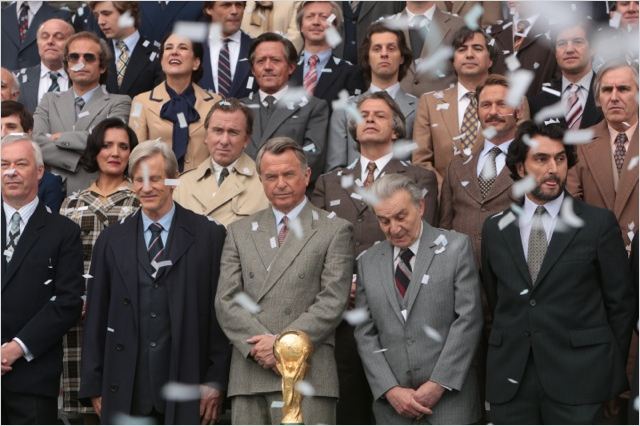
In a year rocked by a virus, we finally will see a champion crowned in one of North America’s “Big Four” as the NHL’s Stanley Cup finals, featuring the Dallas Stars and Tampa Bay Lightning, has begun. It’s a return to a degree normalcy in many for Canada and the United States. It would probably make a good sports film, a genre so formulaic it is hard to break away from.
In simple terms the formula of the sports film is as follows: team or player is underperforming, team or player faces real adversity, team or player finds a way to push past adversity, grand finale with a glorious moment of sorts. This formula can be found it almost every single modern sports film whether it has an animal as the lead (MVP: Most Valuable Primate/Robert Vince – 2000) or is incredibly bleak (The Wrestler/Darren Aronofsky – 2008) or is Sci-Fi schlock (RollerBall/Norman Jewison – 1975). The formula is in the blood of a sport film. But why?
The answer is super duper simple. If one looks to real-world sports, one will easily notice the tendency of general fans to hate “the elite.” Teams like the Real Madrid or New England Patriots are met which such a universal groan that an outsider can’t help but want to cheer for an underdog like the Celta de Vigo or the Jacksonville Jaguars when they meet these alphas. This anti-establishment-like attitude has seemingly flowed into related cinema.
With this, the question of what successful strays to the formula are there arises.
Certainly, there are a number of great documentaries about sports and sports figures that give the formula little care but they often are not considered sports films, but rather regarded as more of a cultural study that just happens to be about sport, and dramatic films like Raging Bull (Martin Scorsese – 1980) or The Pride of the Yankees (Sam Wood – 1942) seem almost 50/50 on whether they are counted as a sports film or as something else because their focus isn’t the sport as much as the story outside of the sport, despite hitting the right plot points.
There is one very clear exception to the typical sport film rules that still clearly falls into the sports film category as it is a complete celebration of sport: the critically panned and FIFA-produced propaganda film United Passions (Frédéric Auburtin – 2014) which pushes athletics and coaching aside in favour of the promotion executives and movers and shakers. While the film failed to catch fire, HBO’s Dwayne Johnson-lead Ballers (Stephen Levinson – 2015-19) proved that a behind the scenes sports story mostly devoid of the underdog element can be a commercial success, at least on television where subversions of the typical sports story have been popular for years.
While cinema has an idea of how to change the sports film formula, it seems uncertain that a film focused on a superstar athlete or alpha team can be a success with a general audience. While Todd Phillips’ upcoming Hulk Hogan-biopic might change things, we’re likely to see a number of films like The Way Back (Gavin O’Connor – 2020) for years to come.
M Rooney is a filmmaker and programmer from Toronto, Canada. He studied fine art at Thompson Rivers University.